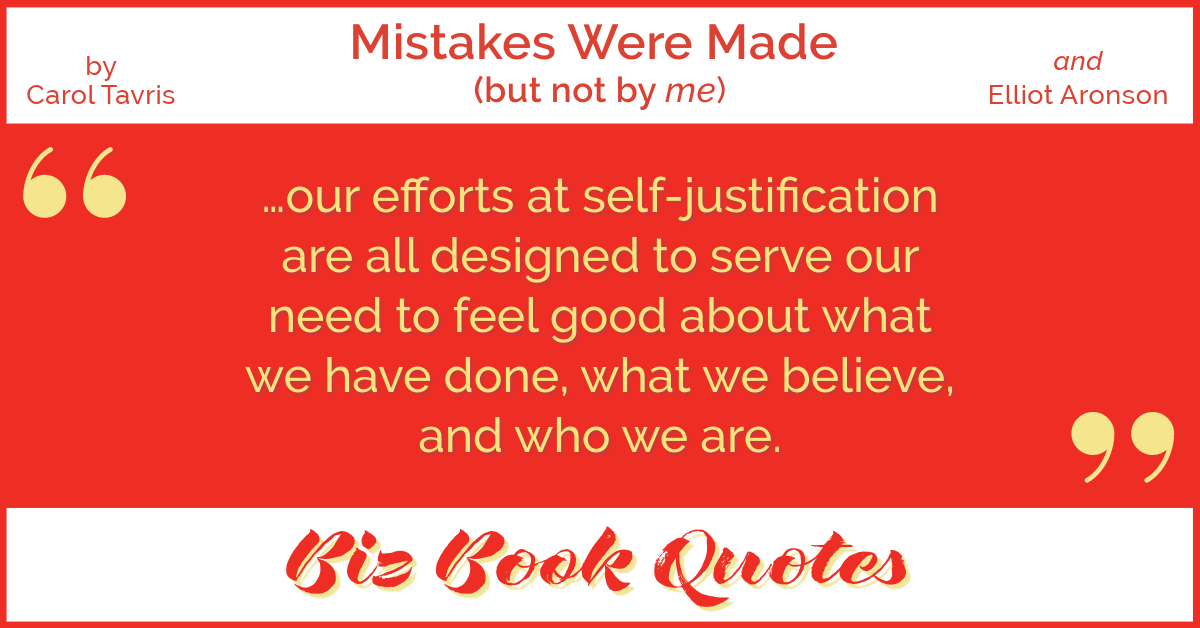 |
…our efforts at self-justification are all designed to serve our need to feel good about what we have done, what we believe, and who we are.
|
054 |
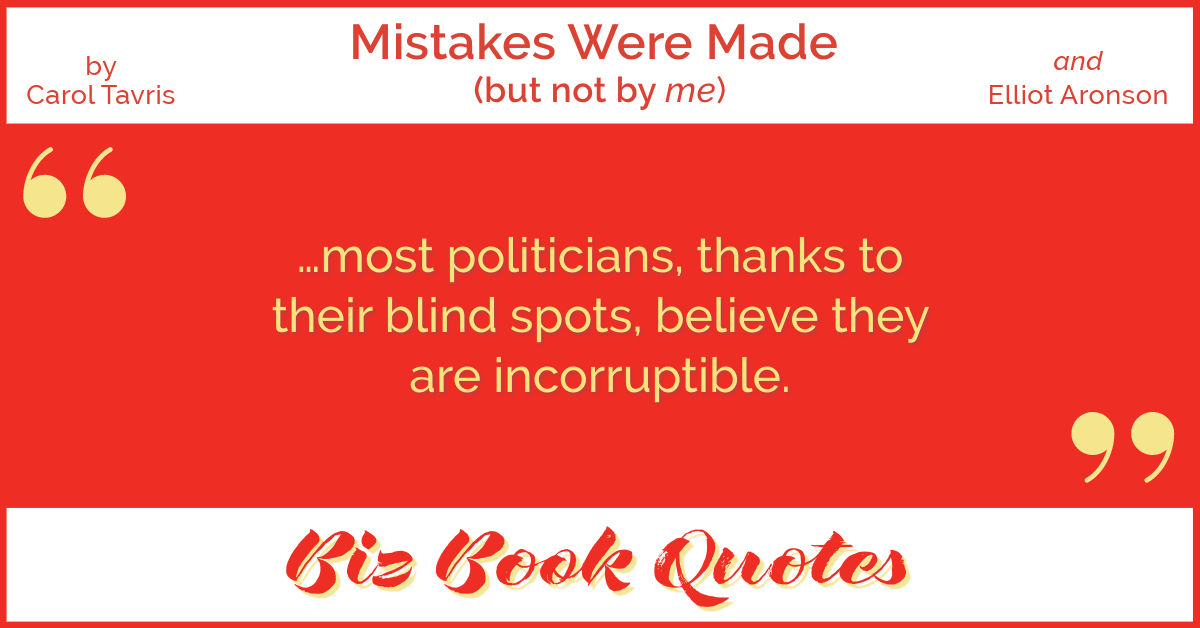 |
…most politicians, thanks to their blind spots, believe they are incorruptible.
|
061 |
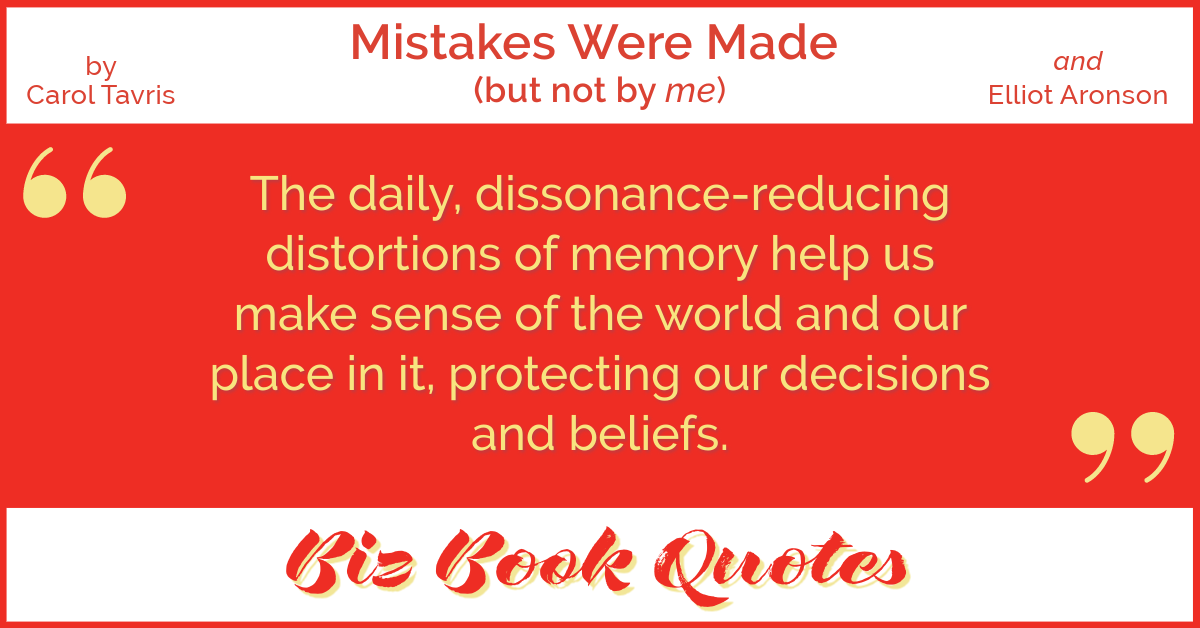 |
The daily, dissonance-reducing distortions of memory help us make sense of the world and our place in it, protecting our decisions and beliefs.
|
098 |
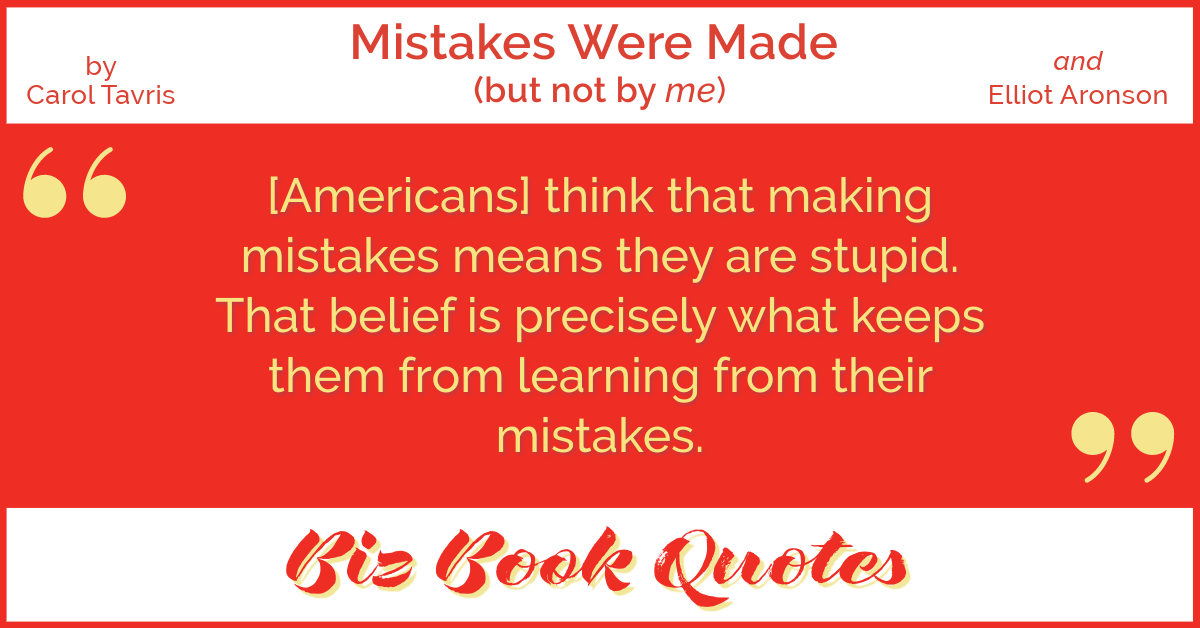 |
[Americans] think that making mistakes means they are stupid. That belief is precisely what keeps them from learning from their mistakes.
|
306 |
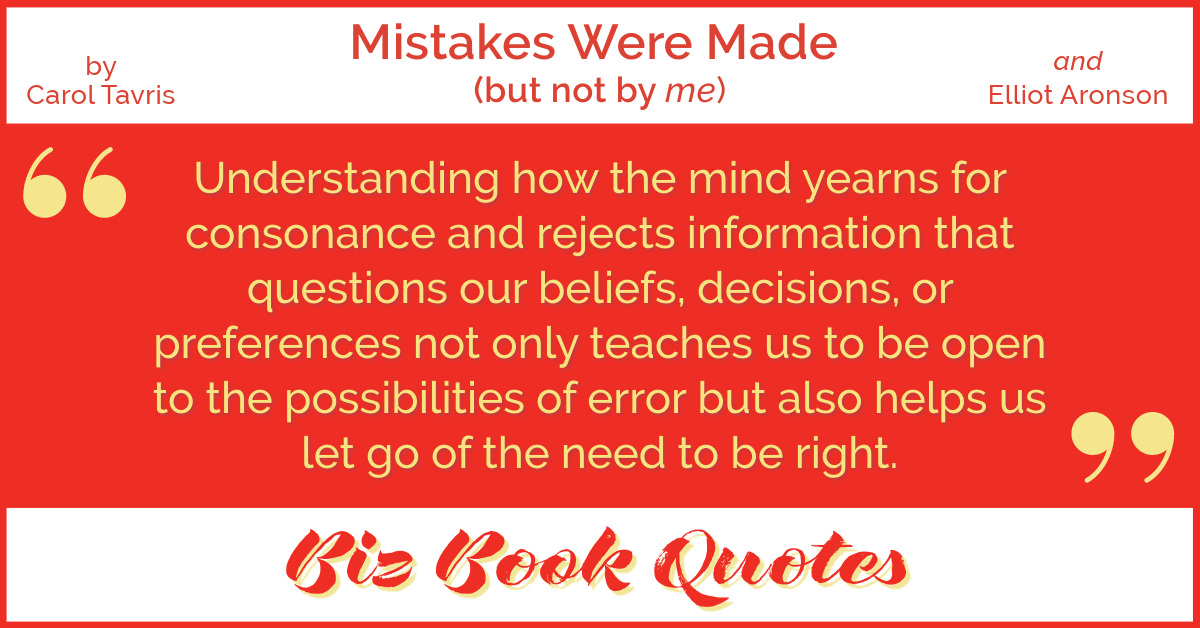 |
Understanding how the mind yearns for consonance and rejects information that questions our beliefs, decisions, or preferences not only teaches us to be open to the possibilities of error but also helps us let go of the need to be right.
|
311 |
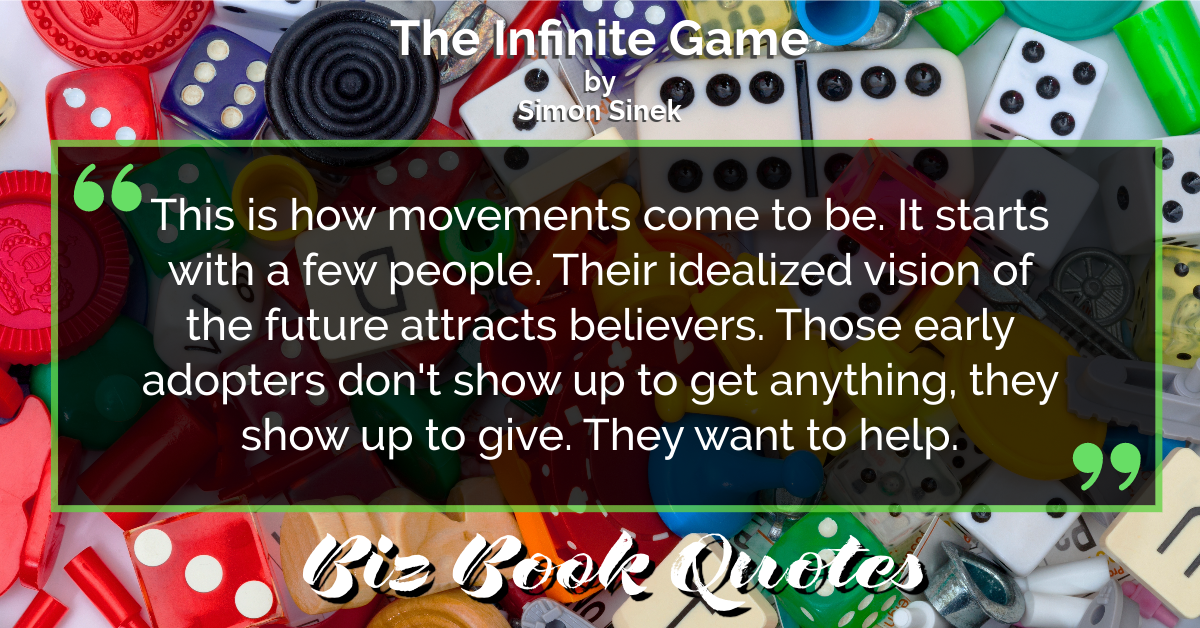 |
This is how movements come to be. It starts with a few people. Their idealized vision of the future attracts believers. Those early adopters don’t show up to get anything, they show up to give. They want to help.
|
040 |
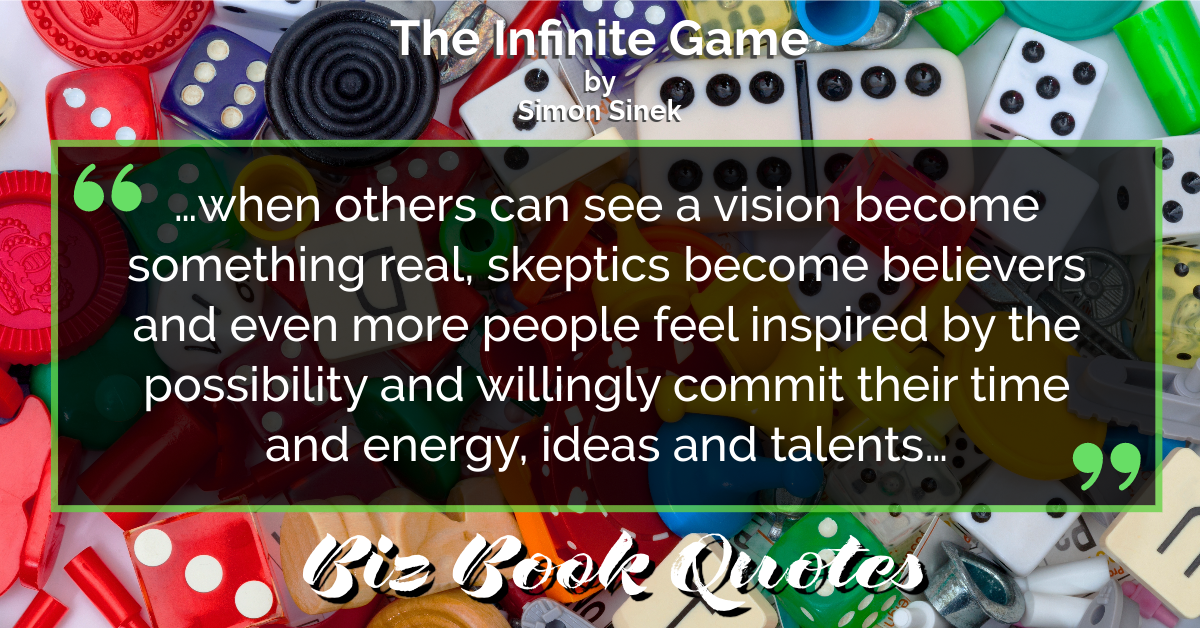 |
…when others can see a vision become something real, skeptics become believers and even more people feel inspired by the possibility and willingly commit their time and energy, ideas and talents…
|
048 |
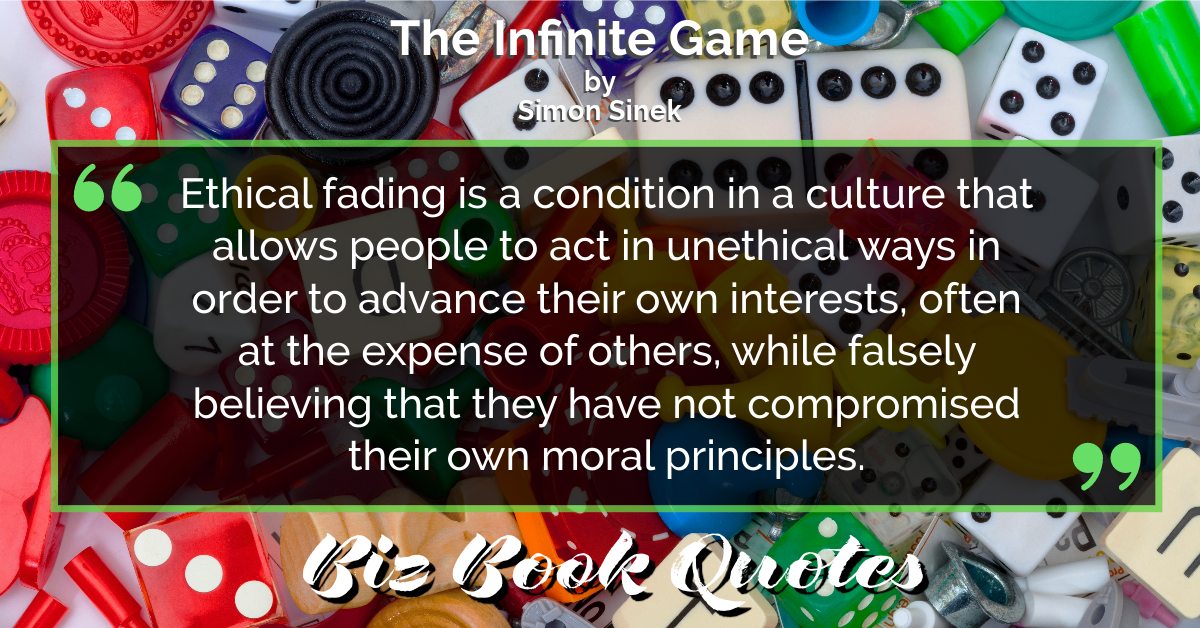 |
Ethical fading is a condition in a culture that allows people to act in unethical ways in order to advance their own interests, often at the expense of others, while falsely believing that they have not compromised their own moral principles.
|
132 |
 |
The obstacles, the enemies, the critics – they are not as numerous as you think. It’s an illusion they want you to believe.
|
024 |
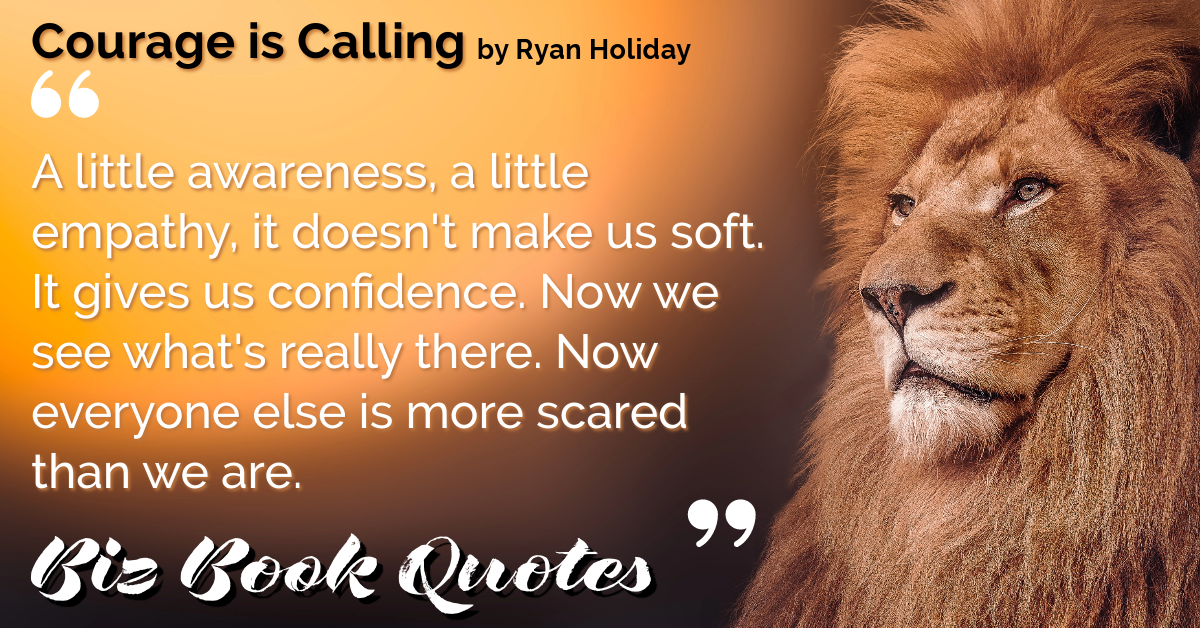 |
A little awareness, a little empathy, it doesn’t make us soft. It gives us confidence. Now we see what’s really there. Now everyone else is more scared than we are.
|
047 |